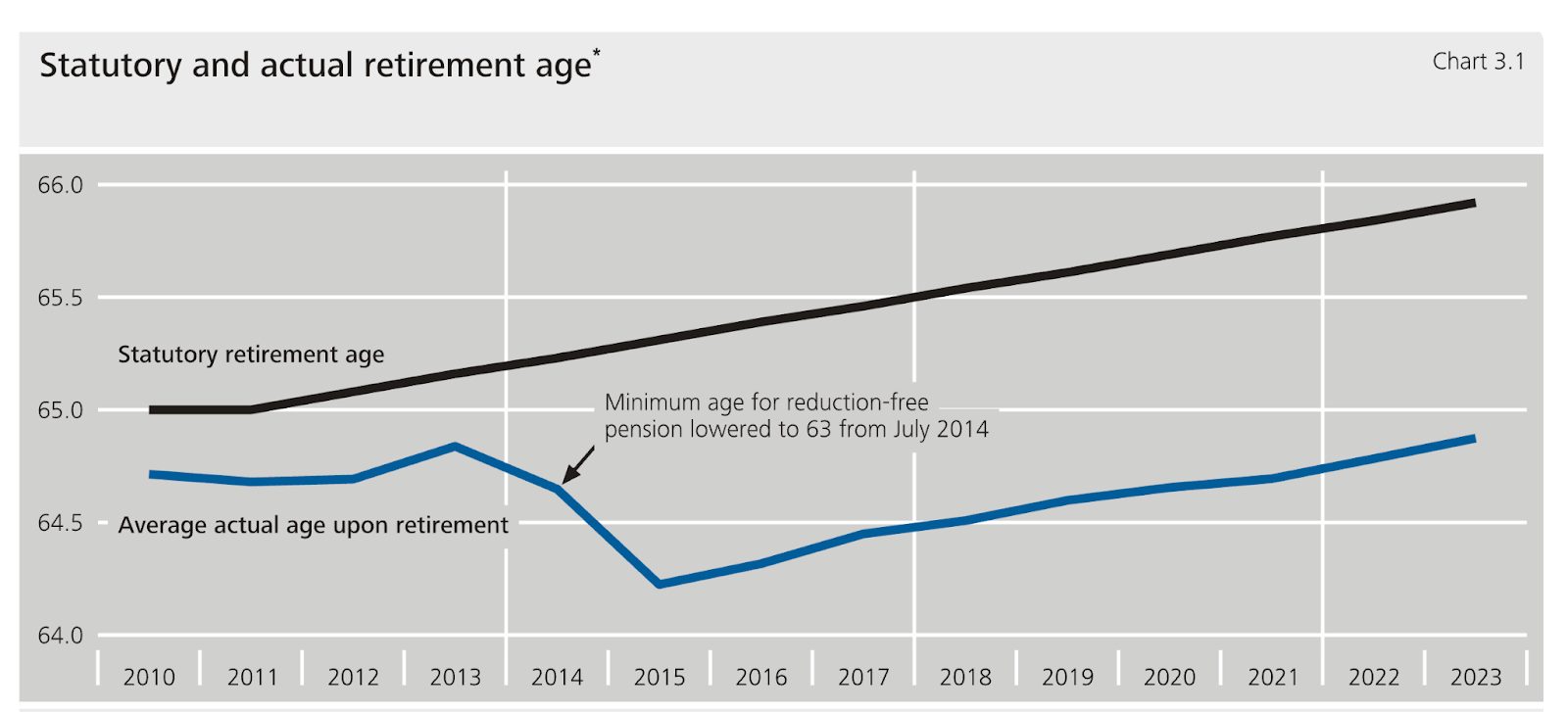What is the Retirement Age in Germany? Now and in the Future?
Read about the current retirement age in Germany for the public pension system and what happens if you retire earlier than that.Updated on 7 November 2025

Updated on 7 November 2025

The current retirement age for the public pension system is 67 if you were born in or after 1964. Your earliest retirement age is then 63, but a penalty of 0.3% per month applies for each month you retire early.
The statutory retirement age for a public pension has been increasing gradually: the precise official retirement age is shown in the table below.
The Official Retirement Age by Year of Birth
Your Birth Year | Age at which you can Retire with a Full Pension | Corresponding Year of Retirement |
|---|---|---|
1955 | 65 and 9 months | 2020-21 |
1956 | 65 and 10 months | 2022-23 |
1957 | 65 and 11 months | 2023-24 |
1958 | 66 | 2024 |
1959 | 66 and 2 months | 2025-26 |
1960 | 66 and 4 months | 2026-27 |
1961 | 66 and 6 months | 2027-28 |
1962 | 66 and 8 months | 2028-29 |
1963 | 66 and 10 months | 2029-30 |
1964 | 67 | 2031 |
1964 and younger | In principle 67, but most likely later (see below) |
What Will Happen If You Were Born After 1964? There is no official change in the retirement age for you yet, but we expect the retirement age to increase by about 1 month per year you were born after 1964. Why? Because longevity continues to rise, we live approximately one month longer each year, primarily due to improvements in healthcare and access to medical services. That we continue to live longer is a well-documented long-term trend¹. This trend is strong, but slowing. Life expectancy is not growing as fast for the post-1939 generations as it was for older generations. It has slowed to about 1 month per year.
It is also worth noting that life expectancy in Germany remains well below that of many other European countries, such as the Netherlands or France. This makes it even more likely that life expectancy will increase further in Germany.
Another factor contributing to the likely increase in the retirement age is budgetary pressure. With the public pension system already facing a large deficit, and the viability under pressure due to the aging of the population, there are powerful budgetary reasons to continue increasing the retirement age for the public pension. Read our detailed article about the public pension in Germany here.
¹ Source: Max Planck Institute for Demographic Research (MPIDR), "Cohort Life Expectancy is no Longer Rising as Quickly," (Press Release, August 26, 2025).
Statutory Retirement Age | In Retirement Year |
|---|---|
68 | 2040 |
69 | 2050 |
70 | 2065 |

The figure below from the Bundesbank² illustrates how both the statutory retirement age and the minimum retirement age have evolved.
However the future looks, it is never too early — and never too late — to start saving and investing wisely and effectively for your future.
Sign up here to get access to your dashboard with detailed retirement income estimations.
² Source: Bundesbank, "Early, standard, late: when insurees retire and how pension benefit reductions and increases could be determined" (Monthly Report, June 17, 2025)